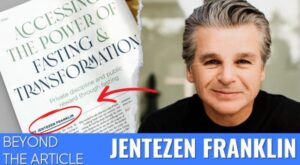Medicaid, the huge government health program for the poor and the indigent, is broken.
Both the Trump administration’s recent budget submission and the House-passed American Health Care Act, designed to partially repeal and replace Obamacare, propose Medicaid fixes.
Dubious assumptions burden the Trump budget proposal, and the House health care reform bill labors under some serious deficiencies. Both are correct, however, in resetting the general direction on Medicaid policy.
Medicaid is beset by two serious problems.
The first is a fiscal problem. Medicaid is an “open-ended” federal entitlement, and thus it contributes, like other major federal entitlements, to deficits and dangerous levels of national debt.
As the Congressional Budget Office has described current Medicaid financing:
All federal reimbursement for medical services is open-ended, meaning that if a state spends more because enrollment increases or costs per enrollee rise, additional federal payments are automatically generated.
America can no longer afford automatic federal entitlement spending. This is a bipartisan conclusion.
In 2008, for example, a politically diverse group of senior analysts and economists, in “Taking Back Our Fiscal Future,” concluded:
The first step toward establishing budget responsibility is to reform the budget decision process so that the major drivers of escalating deficits—Social Security, Medicare, and Medicaid—are no longer on autopilot.
The signatories included top analysts from The Heritage Foundation, American Enterprise Institute, Brookings Institution, Progressive Policy Institute, New America Foundation, and Urban Institute.
These analysts issue a further recommendation:
Congress and the president enact explicit long-term budgets for Medicare, Medicaid, and Social Security that are sustainable, set limits on automatic spending growth, and reduce the relatively favorable budgetary treatment of these programs compared with other types of expenditures.
Both the Trump budget proposal and the House health care reform bill are taking a first big step in that direction: capping the annual growth in Medicaid spending. This is a fundamental and fiscally responsible decision. Medicaid should no longer be an “open-ended” entitlement.
The second Medicaid problem is its programmatic performance.
Medicaid serves the poor and the indigent—mostly poor women and children, the disabled, and the poor elderly, including nursing home care as part of its long-term care supports and services.
The program is not doing a good job. Compared to the privately insured, based on various studies, Medicaid patients have less access to care, longer hospital stays, and higher mortality rates.
This is not surprising since Medicaid pays doctors about 66 percent of what Medicare pays, and Medicare already pays doctors about 20 percent below private market rates.
Medicaid is not delivering the value commensurate with its rising cost. The best way to secure value—better care at lower costs—is to encourage competition based on personal choice and control over the dollars and decisions.
Obviously, such a market-based model is not appropriate for all Medicaid beneficiaries. A block grant approach, with ample state flexibility to manage care in their interest, may be the best option.
For able-bodied persons, however, Congress and the administration should go beyond block grants and create a new Medicaid option, harnessing the market forces of choice and competition.
This can best be done through a defined contribution (a “premium support”) to competing private health plans and providers that able-bodied Medicaid beneficiaries choose.
With broader networks of doctors and other medical professionals, such a policy would offer Medicaid beneficiaries superior coverage and better access to care than they have today. That kind of change would be transformational.
Robert E. Moffit, a seasoned veteran of more than three decades in Washington policymaking, is a senior fellow in The Heritage Foundation’s Center for Health Policy Studies.
This article was originally published at DailySignal.com. Used with permission.
See an error in this article?
To contact us or to submit an article


















